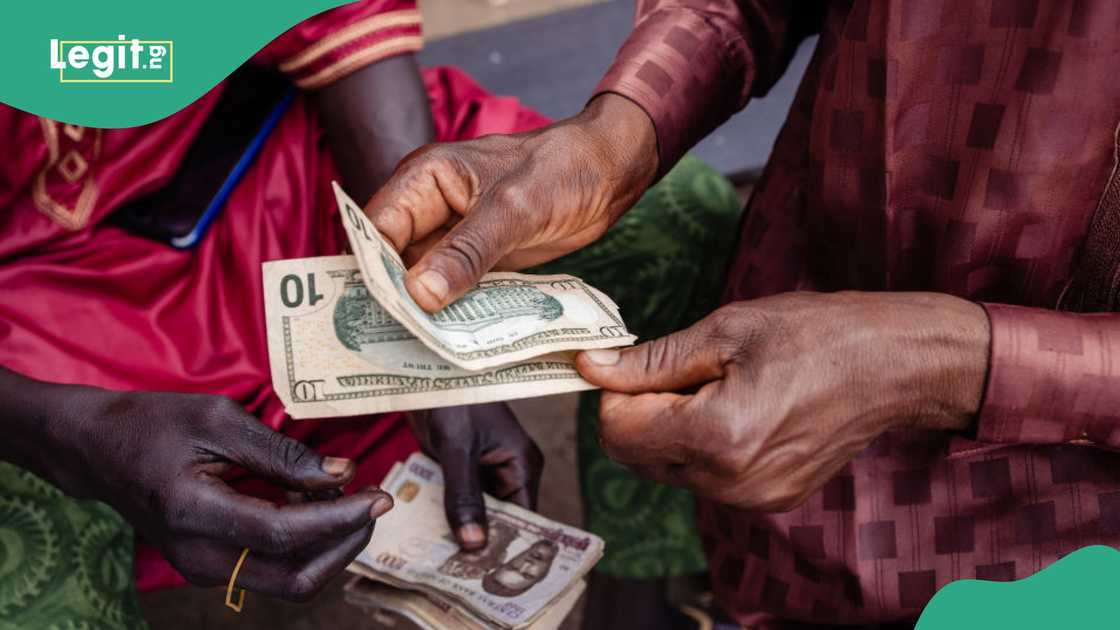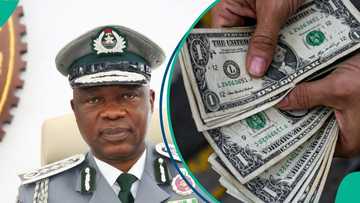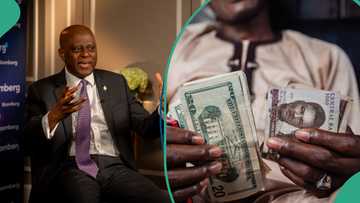Access, UBA, GTB, Others Adjust Exchange Rates as Naira Crashes Again against US Dollar
- Naira’s value has depreciated against the United States dollar in the official and unofficial forex markets
- The latest exchange rate marks the second straight day of heavy depreciation for the naira in both official and parallel markets
- The FX market has remained volatile as the CBN struggles to tackle high seasonal forex demand
Legit.ng journalist Dave Ibemere has over a decade of business journalism experience with in-depth knowledge of the Nigerian economy, stocks, and general market trends.
The Nigerian currency, the naira, extended its fall against the dollar in the foreign exchange market
According to data from the FMDQ Securities Exchange, the naira for the second day dropped in value in the Nigerian Autonomous Foreign Exchange Market (NAFEM) to exchange at N1,654.09/$1 on Wednesday, October 23.

Source: Getty Images
Wednesday’s exchange rate represents a 0.06% or N1.07. depreciation compared with N1,653.02/$1, which was traded on Tuesday.
The naira’s fall comes amid a decline in forex transactions from banks and authorised dealers.
During the midweek session, total forex turnover was 136.68 million compared with the $176.15 million carried out a day earlier, indicating a decline of 22.4% or $39.47 million.
The NAFEM window exchange rates are used by Nigerian banks when transacting with customers.
Naira rate against pound, euro
CBN data also showed that the Nigerian currency declined in value against the Pound Sterling at NAFEM on Wednesday by N9.86 to sell for N2,147.22/£1 versus the preceding day’s N2,137.36/£1.
While against the euro, the Nigerian currency lost N9.67 to finish at N1,789.93/€1 versus N1,780.26/€1
Naira to dollar rate at black market
Meanwhile, traders told Legit.ng in the black market that the naira also depreciated against the dollar.
Abdulahii a BDC trader told Legit.ng
"Naira value dropped by N5 to settle at N1,720/$1 compared with the N1,725/$1 it was transacted on Tuesday."
Report predicts how Nigeria will get dollars
Legit.ng reported that a recent quarterly statistical bulletin from the Central Bank of Nigeria (CBN) had highlighted that foreign exchange (FX) consumers consumed more dollars in the three months ending in December 2023 than they did in the previous quarter.
The inflows would likely come from World Bank budget finance, NNPC-related flows, and Eurobond issuance.
Proofread by Kola Muhammed, journalist and copyeditor at Legit.ng
PAY ATTENTION: Сheck out news that is picked exactly for YOU ➡️ find the “Recommended for you” block on the home page and enjoy!
Source: Legit.ng




